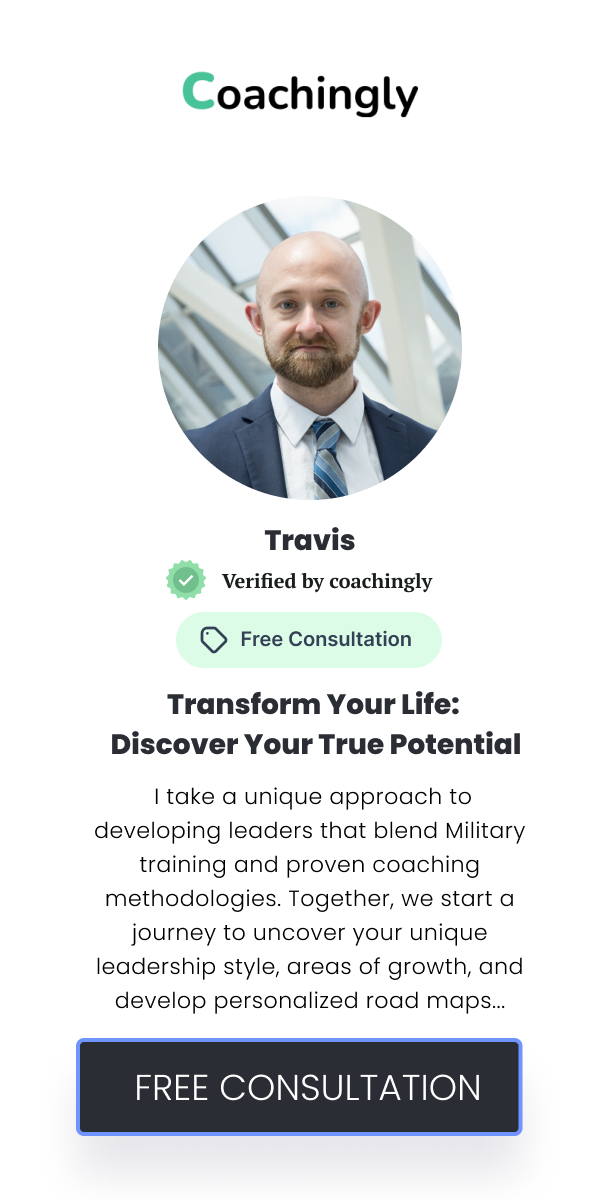
Navigating Career Transitions: How to Move into Leadership Roles
![]() Travis Eaton
Travis Eaton
![]() June 25, 2024
June 25, 2024
Transitioning into leadership roles is a pivotal step in many professionals' careers, signifying not just a change in title but a shift in responsibility and influence. Whether you're aspiring to lead a team, department, or an entire organisation, the journey towards leadership requires a clear understanding of your career trajectory and goals. It begins with recognising the desire for career advancement and acknowledging the strategic importance of stepping into leadership positions. Before embarking on the path to leadership, it's essential to assess your current skill set and readiness. Evaluate your strengths and weaknesses objectively, considering both technical proficiencies and soft skills crucial for effective leadership. Identifying any gaps in your experience or knowledge allows you to develop a targeted plan for improvement, ensuring you're well-equipped to handle the challenges of leadership. Clear and actionable career goals are fundamental to navigating a successful transition into leadership roles. Define your leadership aspirations with specificity, using the SMART criteria (Specific, Measurable, Achievable, Relevant, Time-bound) to structure your objectives. Whether aiming for a managerial position within your current organisation or seeking leadership opportunities elsewhere, setting tangible goals provides a roadmap for your professional development. Leadership qualities encompass a broad spectrum of attributes, from effective communication and emotional intelligence to decisive decision-making and strategic vision. Cultivating these qualities requires proactive effort and self-awareness. Communication skills, for instance, enable leaders to articulate their vision clearly and inspire others towards a common goal. Emotional intelligence fosters empathy and resilience, essential for navigating interpersonal dynamics within teams. Gaining leadership experience often begins within your current role or organisation. Seek opportunities to take on additional responsibilities, such as leading projects or mentoring junior colleagues. Actively engage in cross-functional teams or committees that align with your career aspirations, demonstrating initiative and a proactive approach to leadership development. Transitioning into leadership roles inevitably presents challenges, both internal and external. Combatting imposter syndrome, for example, involves recognising and mitigating self-doubt while building confidence in your abilities. Additionally, navigating potential resistance from peers or superiors requires diplomacy and assertiveness, highlighting your readiness and commitment to assuming leadership responsibilities. Educational programs and certifications tailored to leadership development offer valuable insights and frameworks for aspiring leaders. Enrolling in leadership training courses or pursuing certifications, such as those provided by recognised organisations like Leadership Empowerment Coach, enhances your credibility and expertise. These programs equip you with practical skills and theoretical knowledge essential for effective leadership. Networking plays a pivotal role in career advancement, particularly when aspiring to leadership roles. Actively participate in industry events, conferences, or professional networking groups to expand your contacts and build meaningful relationships. Establishing a supportive network of peers, mentors, and industry influencers provides invaluable guidance and opportunities for career progression. Articulating your leadership narrative effectively is crucial for positioning yourself as a capable and visionary leader. Develop a personal brand that reflects your leadership style, values, and achievements. Communicate your career journey and professional milestones with clarity and confidence, demonstrating how your experiences and skills align with your leadership aspirations. Putting your career transition plan into action requires diligence and adaptability. Execute each step of your plan systematically, monitoring progress and adjusting strategies as needed. Regularly review your goals and performance metrics to ensure alignment with your overarching career objectives. Maintaining a proactive approach to professional development sustains momentum and facilitates continued growth as a leader. Sustaining momentum and fostering continuous growth as a leader involves ongoing self-reflection and learning. Engage in lifelong learning opportunities, such as workshops, seminars, or industry publications, to stay abreast of emerging trends and best practices in leadership. Cultivate a growth mindset that embraces challenges as opportunities for development, ensuring you evolve as a resilient and impactful leader.Understanding the Path to Leadership
Assessing Your Current Skills and Readiness
Setting Clear Career Goals
Developing Leadership Qualities
Strategies for Gaining Leadership Experience
Overcoming Challenges in Transitioning
Leveraging Educational and Certification Programs
Networking and Building Professional Relationships
Crafting Your Leadership Narrative
Implementing and Reviewing Your Career Transition Plan
Maintaining Momentum and Continued Growth

Recent Articles
Unlocking Your Leadership Potential: Combining Military Discipline with Modern Psychology
The Importance of Effective Le...
![]() Jun 29, 2024
Jun 29, 2024
The Art of Leadership: Lessons from a Military Veteran Turned Leadership Coach
Understanding Leadership in th...
![]() Jul 05, 2024
Jul 05, 2024
From Battlefield to Boardroom: Military Strategies for Effective Leadership
Understanding Military Leaders...
![]() Jul 06, 2024
Jul 06, 2024
Developing Your Unique Leadership Style: Insights from Military-Based Coaching
Understanding Military-Based L...
![]() Jul 03, 2024
Jul 03, 2024
Mastering Emotional Intelligence: A Key Component of Modern Leadership
Understanding Emotional Intell...
![]() Jul 12, 2024
Jul 12, 2024
Overcoming Leadership Challenges: Strategies from a US Army Infantry Veteran
Leadership challenges are ubiq...
![]() Jul 07, 2024
Jul 07, 2024
Creating a Personalised Leadership Roadmap: A Comprehensive Guide
Effective leadership isn't jus...
![]() Jul 11, 2024
Jul 11, 2024
The Power of Self-Awareness in Leadership: Techniques and Tips
Understanding Self-Awareness i...
![]() Jul 10, 2024
Jul 10, 2024
Leadership Empowerment: Blending Military Experience with Psychological Coaching
Understanding Military-Based L...
![]() Jul 04, 2024
Jul 04, 2024
Navigating Leadership Roles: From Aspiring Leader to Seasoned Manager
Understanding Leadership Devel...
![]() Jul 09, 2024
Jul 09, 2024
Building Strong Teams: Lessons in Diversity and Inclusion from Military Leadership
Understanding Military-Based L...
![]() Jul 02, 2024
Jul 02, 2024
Enhancing Your Communication Skills: Military Techniques for Modern Leaders
The Importance of Communicatio...
![]() Jul 01, 2024
Jul 01, 2024
Setting and Achieving Leadership Goals: Proven Strategies for Success
Effective leadership is not ju...
![]() Jul 08, 2024
Jul 08, 2024
Cultivating Confidence as a Leader: Military Insights and Psychological Practices
Understanding Leadership Confi...
![]() Jun 28, 2024
Jun 28, 2024
The Importance of Focus in Leadership: Techniques from CORE Leadership Coaching
Understanding the Essence of F...
![]() Jun 27, 2024
Jun 27, 2024
Becoming a Resilient Leader: Lessons from the Frontlines
Understanding Resilience in Le...
![]() Jun 26, 2024
Jun 26, 2024
Effective Decision-Making: Military Strategies for Leaders
Understanding the Importance o...
![]() Jun 24, 2024
Jun 24, 2024
Developing a Strong Leadership Presence: Tips from a Professional Coach
Understanding Leadership Prese...
![]() Jun 23, 2024
Jun 23, 2024
Leadership Coaching for New Managers: Building a Solid Foundation
Navigating the transition into...
![]() Jun 22, 2024
Jun 22, 2024
The Role of Spiritual Awareness in Leadership Development
Understanding Spiritual Awaren...
![]() Jun 21, 2024
Jun 21, 2024
Leadership and Personal Growth: A Holistic Approach to Success
Understanding the Interconnect...
![]() Jun 20, 2024
Jun 20, 2024
The Future of Leadership: Integrating Traditional Values with Modern Practices
Defining Leadership in a Chang...
![]() Jun 19, 2024
Jun 19, 2024
